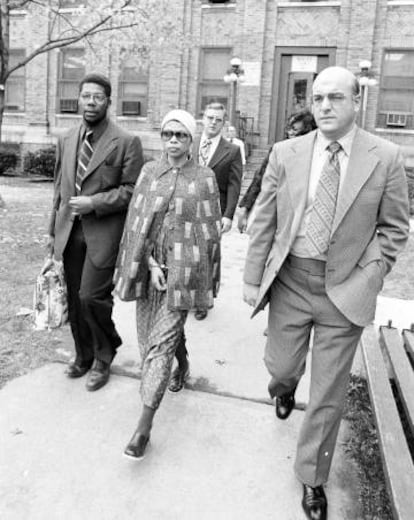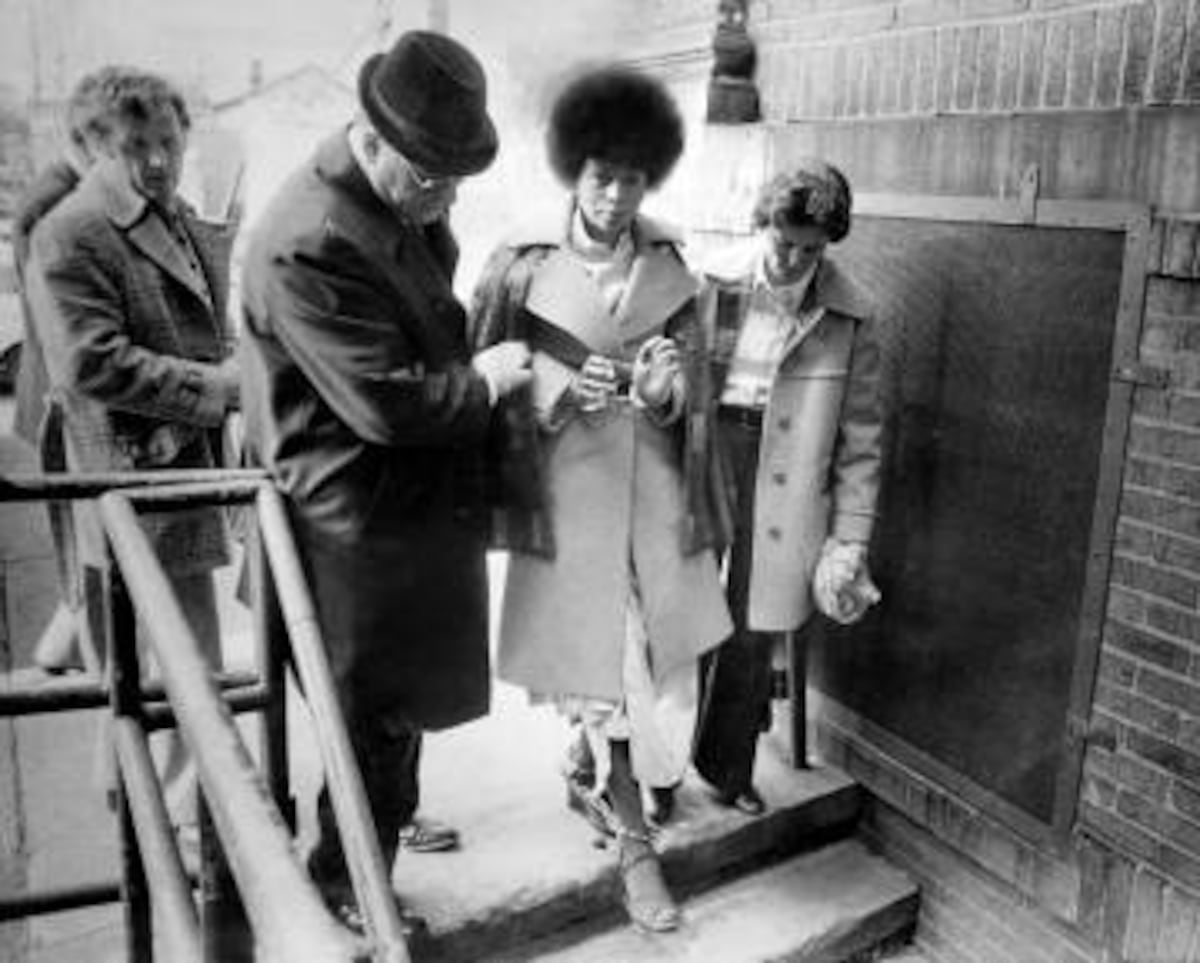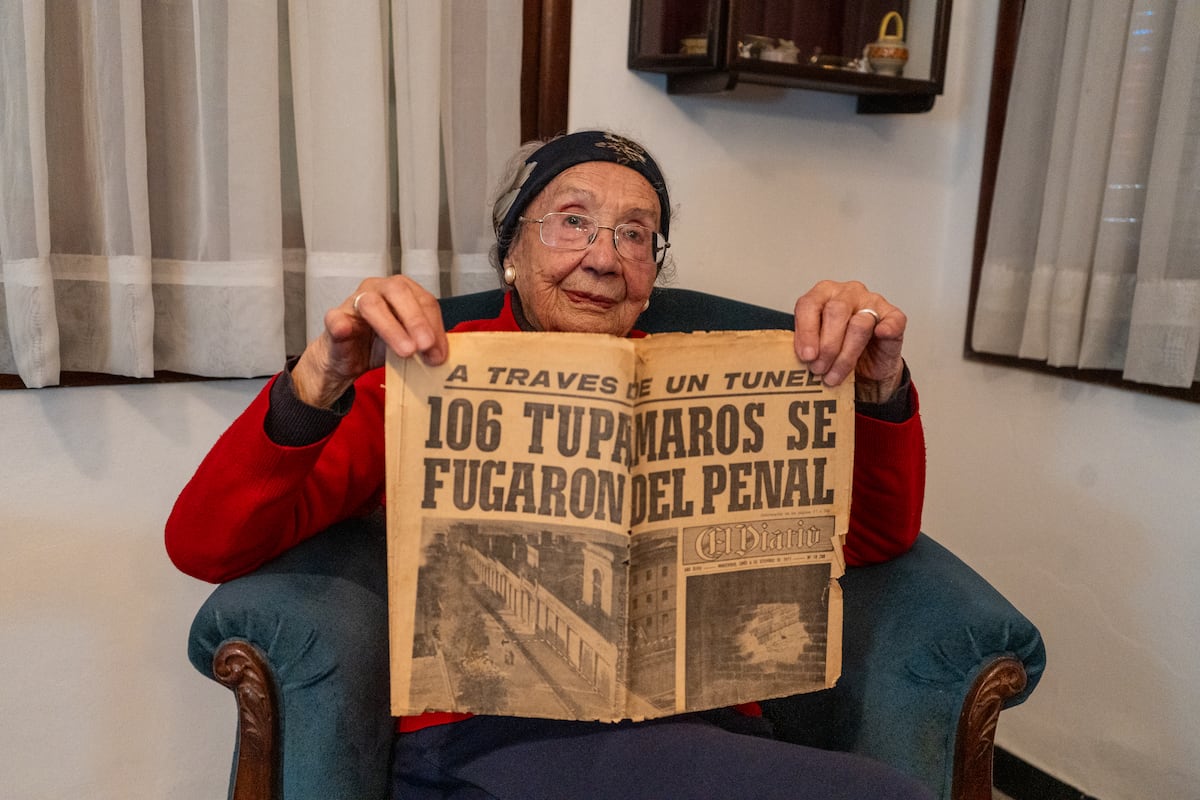The Federal Bureau of Investigations describes her as follows: brown eyes, black/gray hair worn “in a variety of styles.” Height: 5 feet 7 inches. Weight between 135 and 150 pounds. Scars on her chest, abdomen, left shoulder and left knee. Sex: female. Citizenship: American. Race: Black. Name: Joanne Deborah Chesimard. Alias: Assata Shakur, former member of the Black Panther Party and the Black Liberation Army, accused 52 years ago of the murder of a New Jersey state trooper, living in Cuba since the days of the Cold War after having been given shelter by Fidel Castro.
She’s been seen in the streets of downtown Havana, a ghost inhabiting the troubled world of the Cubans. Most people don’t know who she is, and would hardly recognize her if they bumped into her in line at the farmer’s market. It’s even less likely that they’d suspect her of being on the U.S. Department of Justice’s most wanted list, a 77-year-old fugitive whom U.S. authorities are not willing to forget.
Recently, in a post on X, Cuban American U.S. Secretary of State Marco Rubio took it upon himself to deliver a reminder of certain issues that were still pending with Havana. “The Cuban regime continues to provide safe haven for terrorists and criminals, including fugitives from the United States,” he wrote. “We owe the victims and the American people our unwavering commitment to holding the Cuban regime accountable.” He was referring to the Shakur case, which for four decades has been a kind of “elephant in the room” — a topic present both in the friendliest and the tensest moments of U.S.-Cuba relations.
The Cuban regime continues to provide safe haven for terrorists and criminals, including fugitives from the United States.
We owe the victims and the American people our unwavering commitment to holding the Cuban regime accountable.https://t.co/UqZ3dgQScq
— Secretary Marco Rubio (@SecRubio) May 3, 2025
At 36 years old, with her prominent cheekbones and her hair in an Afro, Shakur arrived in Cuba after a spectacular escape from a maximum-security prison in Hunterdon County. More than a half-century after she was handed a life sentence, the FBI still offers a $1 million reward for information on her whereabouts. Colonel Patrick J. Callahan, current head of the New Jersey State Police, told Fox News, “I have Trooper Foerster’s handcuffs ready to go on her” the day she lands at a state airport.
Although Shakur maintains her innocence of the murder, the name of Werner Foerster must be a weight on her shoulders. The 34-year-old officer was killed on May 2, 1973, in an altercation that took place somewhere along the New Jersey state highway. The Pontiac sedan that carried Shakur and her friends Zayd Shakur and Sundiata Acoli was stopped by officials, apparently, for having a broken taillight.
According to the official account, it was Assata Shakur who first opened fire on the police, leading to the death of Foerster and another officer with a bullet wound. Shakur denies this version of the events. Forensic tests never revealed gunshot residue on her hands. Three neurologists testified that she would not have had time to grab the weapon, given that her hands were in the air when she received the police gunshots that wounded her clavicle and the median nerve of her right hand.
“I was left on the ground to die, and when I did not, I was taken to a local hospital where I was threatened, beaten and tortured,” Shakur wrote in a 1998 letter to Pope John Paul III.

In 1977, during a trial that Shakur’s lawyer characterized as a “legal lynching,” carried out by an all-white jury, the activist was found guilty of first-degree murder, armed robbery and other crimes, and sentenced to life in prison.
Two years later, in an incident that authorities have yet to explain, the woman managed to escape “with the aid of some of my fellow comrades,” according to her letter to the pontiff. “I saw this as a necessary step, not only because I was innocent of the charges against me, but because I knew that in the racist legal system in the United States I would receive no justice.” The United States considered the jailbreak “an act of national terrorism.”
At the time of the incident that would change her life forever, Shakur was already the target of the authorities due to her work as a member of the Black Liberation Army, which was considered a “radical leftist terrorist group” that fought for “liberation and self-determination” for U.S. Blacks. In the convulsive decade of the 1960s, young Shakur led various student movement struggles against the war in Vietnam and in tandem with the Black liberation movement.
She later joined the Black Panthers, who were at the time considered “the greatest threat to the internal security of the country,” according to FBI director J. Edgar Hoover. While the United States now considers her a “fugitive from justice,” Shakur herself has dubbed her status as that of an “escaped slave.” The system has labeled her a “domestic terrorist,” but she sees herself as an “ex-political prisoner.” U.S. authorities have gone so far as to hang her wanted poster, portraying her as a villain, but many Black people see her as a heroine, and in Brooklyn, where she spent part of her youth, there are posters that read “Assata Shakur is welcome here!”
On more than on occasion, Shakur has said that her struggle is against a system, against the racist heart of her country. A descendant of African people, she spent her childhood in the racist and segregated South. When she moved north, she says she lived the same oppression. “I have advocated, and I still advocate revolutionary change,” states the activist. “I advocate an end to capitalist exploitation, the abolition of racist policies, the eradication of sexism, and the elimination of political repression. If that is a crime, then I am totally guilty.”
After living for years as a fugitive in her own country from the U.S. justice system, she turned up in Cuba in 1984, welcomed as a political refugee by Fidel Castro. When she arrived, she spoke little Spanish. She doesn’t hesitate to speak on how, though Cuba has been “a healing place,” her exile has not been easy: “It was a hard adaptation process. But I went through it.” On the island, she has studied social sciences and raised her daughter Kakuya.
In 2000, during an interview with Pastors For Peace, she was asked why she chose Cuba out of so many other countries to request asylum. The former Black Panther offered various reasons, among them that it was a country with “a long history of supporting victims of political repression.” Shakur was impressed, as many had been before her, by Castro, in his olive-green uniform, speaking of free education, healthcare for all and of how to construct socialism.
She is not the only U.S. resident who has taken refuge on the island. Although there is no official data, it is speculated that Havana has opened its doors and offered protection to some 70 people from the United States. Some see this gesture as a Castro provocation of Washington.
Among the refugees who have spent years on the island is Charles Hill, the Republic of New Afrika militant who hijacked an airplane in Chicago and landed in the airport formerly known as Rancho Boyeros in Cuba after fleeing the U.S. justice system over the murder of a police officer in New Mexico. Other notorious refugees are Cheri Dalton, also known as Nehanda Abiodun, who died in Havana in 2019, a former member of the Republic of New Afrika who was found guilty of the murder of two police officers and a security guard; and William Morales, a member of the Armed Forces of Puerto Rican National Liberation (FALN) who is accused of various terrorist attempts in the United States.
Every year, the U.S. government serves a reminder that Cuba has in its hands U.S. fugitives that it wants to be extradited back to the country, typically putting particular emphasis on the case of Shakur. In 2014, when Barack Obama and Raúl Castro sought to thaw diplomatic relations, it was thought that Shakur could be one of the pieces in play, as were other spies and agents who changed hands between the nations. But that was not to be the case. For Cuba, Shakur is a political refugee. In 2017, when Donald Trump spoke to Miami’s Cuban exile community, he demanded the return of “cop killer Joanne Chesimard.” Upon returning to the White House this year, he returned Cuba to the list of state sponsors of terrorism, from which Joe Biden had removed it just a few days before.
While Washington, the New Jersey state police and certain politicians continue to call for her extradition, Assata Shakur — who does not give interviews — took advantage of her letter to the Pope to ask a question: “Why, I wonder, do I warrant such attention? What do I represent that is such a threat?” she wrote. “Let me emphasize that justice for me is not the issue, it is justice for my people that is at stake. When my people receive justice, I am sure that I will receive it, too.”
Sign up for our weekly newsletter to get more English-language news coverage from EL PAÍS USA Edition







Comentarios